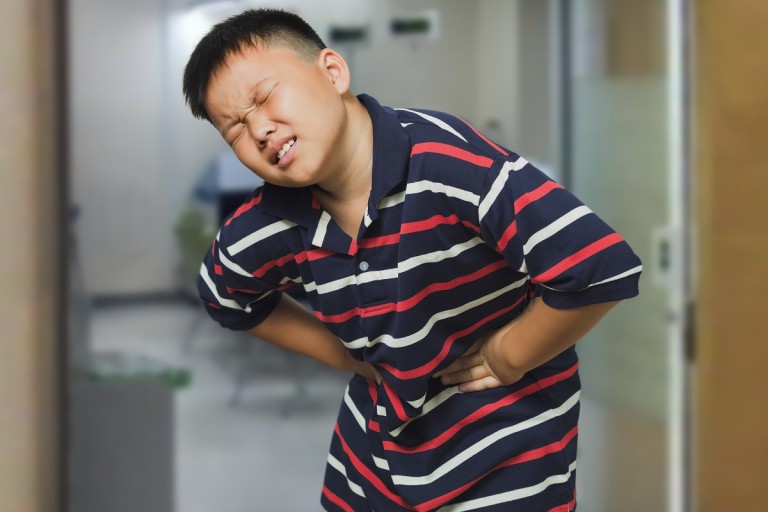Advice from Dr. B
Pediatrician's Perspective
Pediatrician's Perspective

Summer camp is exciting for kids! They make new friends, try new activities, swim in the sun and eat different foods than what they are used to eating at school or home. Just one of these changes can lead to constipation in kids. More than one or two can lead to potty problems. With no parents around, shared potties and stalls in public bathrooms, a child can have real poop issues!
The same tummy trouble can happen at the start of the school year when kids are charged up and adjusting to a new routine. They go from free-moving summer camp activities to a more rigid schedule sitting in classrooms all day—that can be a recipe for tummy trouble.
Just like any change in routine can disrupt sleeping, eating and exercise habits, potty habits can also get off track. While exciting, the stress of adjusting to new schedules and the changes in environment can lead to constipation in children.
Exercise and being active generally help kids poop regularly. Exercise keeps the gut moving! However, if kids fear they will miss out on a fun game or event at camp or school, they may wait until the last minute to go to the potty. Sometimes the urge to poop will go away and they will not poop at all. This is called withholding. Camp counselors and teachers may need to be made aware of a child that has problems with poop withholding so they can give gentle reminders for them to go to the potty, yet still stay active and participate in the events.
Camp bathrooms, school bathrooms and other public restrooms are not comfortable or as private and can be scary for a kid. The toilets may flush louder, too many people might be in the same crowded space, and the bathrooms may not be as clean as ones at home. Even the hand dryers sound like they are going to blow everyone away! Parents and caregivers must understand that these changes can be a big deal for any child to go to the bathroom. They’re even more of a big deal for a kid with constipation.
If your child has issues going to the potty in public places, it may be good to talk about this. Ask your child how they feel about going to different bathrooms. You may make them feel better and come up with solutions that empower the child to go to the potty confidently, such as going during a time when it’s less crowded or going with an adult they feel comfortable with.
The change in eating habits and timing as well as changes in food prep can also play roles in constipation. For example, when going to summer camp, children may:
Sometimes kids may lose their regular appetite because of the excitement of new events and new friends at camp or school. When kids come home at the end of the day, giving them a glass of water and/or some fruit like berries as a snack can help keep constipation away.
Unfamiliar restrooms and surroundings can make a constipated kid avoid going to the potty. This along with a shift in potty routines can quickly lead to constipation or constipation getting worse. Parents should tell camp counselors, teachers and after-hour caregivers if their child feels hesitant about using new or different potties. Tell the counselors, teachers and caregivers they may need to be more compassionate, patient and supportive about the child’s potty time when they are with them. If adults know to reassure and remind them, children can keep as close to their potty routines as possible. Be sure to ask your kids questions about the potty and when they had last visited the bathroom. Remember, talking about suggestions and solutions together can help empower kids and help them feel more in control of their own potty habits.
There is always a bit of chaos and stress when routines are switched up. Children are less likely to realize the cause of their stress and verbalize it. Children may express their frustration and anxiety with changes in their behavior—like withholding poop. Changed schedules alone can lead to changed potty habits in all of us. Adults should be mindful of these things and remember to be patient and empathetic with kids during this time of transition. Again, sometimes just having adults talk to the kids about their feelings can help set them back on track.
These are just some tips to help manage and prevent constipation when kids are transitioning between camp and school seasons. All of these pointers, when used together, can help parents and caregivers manage a child's constipation.
Pedia-lax® products such as the glycerin suppositories or chewable tablets can be used as directed if the child needs relief from constipation. Remember, it is very important to consult with your child’s doctor, especially if the constipation doesn’t go away or keeps occurring.